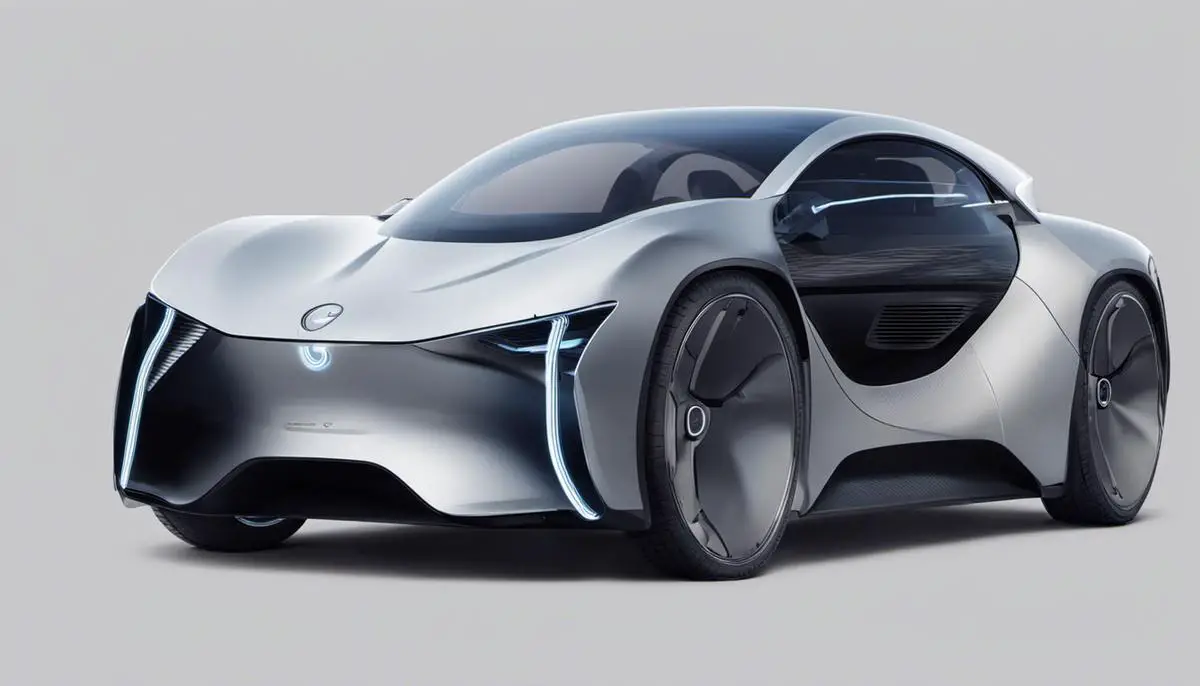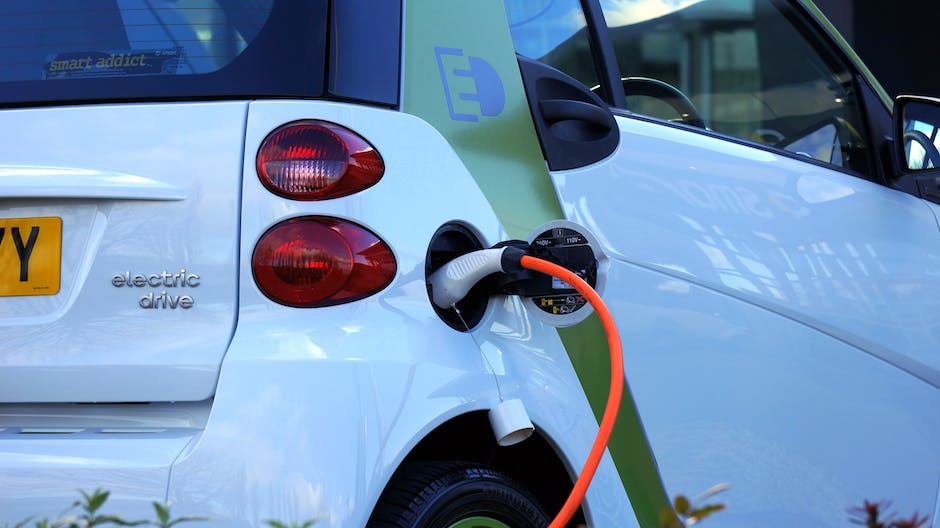Harnessing AI for the Future of Electric Vehicles
As we all know, in the 21st Century, two of the most intriguing technological revolutions are the rise of Artificial Intelligence (AI) and electric vehicles (EVs). While each has its own significance, the converging point of these two technological trends is carving out a new path in the automotive industry, shaping the future landscape of transportation. The fusion of AI and electric vehicles proposes a future full of efficiency and innovation. But exactly how AI is revolutionizing the EV industry―from improving performance & efficiency to incorporating autonomous driving―is both fascinating and poignant. This exploration will delve into the role of AI in EV and how it’s steering us towards an exciting future.
AI and its role in Electric Vehicles
Understanding Artificial Intelligence (AI)
Artificial Intelligence (AI) is an area of computer science that emphasizes the creation of intelligent machines that react and mimic human intelligence. This involves learning from experiences, understanding languages, recognizing patterns, and making decisions. AI’s ultimate aim is to develop machines capable of executing tasks that would normally require human intelligence.
This revolutionary technology has found different applications in several sectors, from health to finance and now, transportation. The transportation sector, specifically the production of electric vehicles (EVs), is undeniably one of the major areas where AI is making significant impacts.
AI in Electric Vehicles
AI has been instrumental in transforming electric vehicles, allowing for more efficient and sustainable operations. One primary area where AI is applied in EVs is in the navigation system. Autonomous driving, facilitated by AI, enables EVs to “sense” their environment and navigate without human input.
AI also plays a significant role in improving the EV charging system. Intelligent charging systems utilize machine learning algorithms to learn the user’s patterns and schedule charging for optimal hours. This “smart charging” can reduce energy costs and better manage the demand on the power grid.
Predictive maintenance is another area where AI is crucial. By using data analysis and predictive algorithms, EVs can alert users about necessary maintenance or potential issues before they become serious problems. This could include battery life predictions, brake wear, and other key maintenance indicators.
AI Driving Safety Enhancements
AI further enhances the safety features of EVs. Advanced safety systems such as the Automatic Emergency Braking (AEB) use AI to evaluate the probability of a collision and can automatically apply the brakes to help prevent or mitigate an accident.
Driver-assist features, including adaptive cruise control and lane-keeping assistance, use AI technologies to help maintain safe distances from other vehicles and keep the vehicle centered in its lane.
Energy Management in EVs with AI
AI assists in improving energy management in electric vehicles as well. The energy management systems in EVs use AI to enhance the performance and efficiency of the battery. The AI system learns from driving patterns, road conditions, and climate to optimize the battery usage and maximize the vehicle’s range.
Conclusion
Artificial Intelligence (AI) has been instrumental in bringing about significant change in the electric vehicle (EV) industry. Its application, ranging from autonomous driving and intelligent charging to predictive maintenance and improved safety functions, has been pivotal. Further advancements in AI and machine learning technologies are set to boost the level of smart features and efficiency in EVs, paving the way for more environmentally friendly and user-oriented transportation.

Impacts of AI on EV Performance & Efficiency
Understanding AI’s Role in Battery Management for EVs
AI plays a vital role in battery management in electric vehicles. It is responsible for the crucial task of analysing and monitoring the energy levels in these batteries to guarantee peak performance. Such AI-driven systems can precisely predict the health of a car’s battery, thereby preventing possible degradation and ensuring the battery’s efficiency. It also aids in gathering samples to identify and predict any potential battery anomalies, effectively enhancing the overall lifespan of the battery.
By harnessing the power of machine learning and advanced neural networks, AI can manage and regulate the charging process of batteries. This ensures a balanced charge that helps avoid undue strain on the cells, extending the lifespan of EV batteries as a result. AI also modulates the ideal temperature for the batteries, which is crucial considering that extreme temperatures can greatly impact the battery’s functionality and, by extension, the performance of the EV.
Routing Optimization and AI
AI plays a crucial role in the optimization of EV routes, significantly conserving power and increasing mileage. AI-powered routing systems are designed to analyze various routes and produce the most energy-efficient path for the vehicle to take. By considering factors such as traffic, road gradient, weather conditions, and driver habits, AI ensures that EVs use minimal energy. This optimization ultimately translates to reduced charging frequency and increased travel range, enhancing overall EV performance.
Self-driving Technology and AI
Self-driving or autonomous driving is another critical aspect of EV efficiency that harnesses AI capabilities. AI governs the self-driving system of electric cars where it controls vehicle functionalities, including acceleration, braking, and steering. This autonomous control ensures smoother and more energy-efficient driving than human-controlled driving, thereby increasing EV mileage.
Combining vast amounts of data collected from LiDAR, radar, cameras, and various sensors, AI can identify objects, interpret traffic signs and lights, and predict other road users’ movements. As such, AI forms the foundation of self-driving technology, which minimizes driving errors, ensuring safer and more efficient road usage.
AI in Reducing Charging times
AI is instrumental in reducing EV charging times. The technology assists in creating smart grids that regulate and prioritize power distribution, consequently reducing charging times. Moreover, AI predicts the best times to charge, based on times when grid power demand is low, thus ensuring faster and more efficient charging.
Through the integration of AI with fast charging technologies, EVs can personalize charging, optimizing power input based on time, cost, and battery health. In turn, this significantly reduces charging times and extends the battery’s lifespan, leading to improved vehicle performance.
Introduction to AI in Electric Vehicles
Artificial Intelligence (AI) is rapidly shaping the future of electric vehicles (EVs), increasing not only their performance but also their efficiency. AI plays a significant role in various aspects of EV technology, such as managing battery life, optimizing routes, and fostering the development of self-driving capabilities. Moreover, this ingenious technology also aids in reducing charging times, making AI an integral part of the venture towards more sustainable transportation solutions.

AI in EV Safety and Self-Driving Technology
AI’s Role in Enhancing Electric Vehicle Safety
Relentless advancements in Artificial Intelligence (AI) are making the drive in an electric vehicle (EV) safer each passing day. AI’s crucial role in EV safety cannot be overstated as it assists in autonomous driving, predicting accidents, detecting obstacles, and understanding road conditions. AI systems greatly boost vehicle safety by leveraging an array of sensors and algorithms, thereby allowing them to predict potential collisions, react to real-time in-vehicle patterns, and comprehend various road conditions.
The automated driving systems, or self-driving technology as they are widely known, marry the power of AI with radar, Lidar, GPS, odometry, and computer vision to effectively perceive their driving environment. AI takes this a step further by interpreting sensor information, determining safe and efficient driving maneuvers, and controlling the vehicle’s electronic systems accordingly. These systems become indispensable lifelines in situations where human reaction times aren’t enough, such as encountering sudden obstructions or navigating in poor visibility.
Accident Prediction and Obstacle Detection
Accident prediction is another area where AI is making EVs safer. By employing advanced algorithms and machine learning techniques, AI systems can predict the likelihood of a collision based on real-time data from various sensors. If a likely collision is detected, the automated system can alert the driver, take preventive measures, such as slowing down the vehicle, or even execute emergency stop maneuvers.
In addition, AI-driven obstacle detection systems in electric vehicles are adept at sensing obstacles on the road. These systems use sensors like ultrasonic sensors, radar, and cameras to detect objects in the vehicle’s path, helping to avoid collisions. Some advanced systems can even identify the type of obstacle – be it another vehicle, a pedestrian, a cyclist, or an animal – and react appropriately to ensure maximum safety.
Levels of Automation in EVs
The level of automation in EVs varies widely, with most modern vehicles falling somewhere between Level 2 and Level 3 on the SAE (Society of Automotive Engineers) Levels of Driving Automation scale. Level 2 vehicles can control both steering and acceleration/deceleration under certain conditions, but the driver must always be ready to take control. Level 3 vehicles can perform all aspects of driving under certain conditions, but the driver must be ready to intervene when the automated system requests.
However, full autonomy, or Level 5, where no human intervention is required at any stage of driving, is still in development and testing phases. Companies such as Tesla and Waymo are leading in this innovation, with their vehicles equipped with advanced AI-driven systems capable of self-learning, enabling them to handle a wider range of driving situations over time.
Artificial intelligence (AI) is a promising technology that aims to redefine safety in the domain of electric vehicles (EVs). Its different use-cases, such as enabling autonomous driving, predicting accidents, and detecting obstacles, are transforming EVs ‘ performance by making them safer and more reliable. Although the degree of automation in EVs currently fluctuates, continuous enhancements are being carried out to increase safety and autonomy levels, holding out the promise of a safer and more efficient future for EVs.

Challenges & Opportunities of AI in EV Industry
The Role of Artificial Intelligence in the Electric Vehicle Sector
AI holds immense potential to drive significant changes within the electric vehicle (EV) sector. It presents promising capabilities to bolster vehicle efficiency and performance, elevate safety measures, and fine-tune energy utilization. One of the hallmarks of AI includes unlocking the potential for self-driving EVs. As the AI technology sector amplifies, there is a simultaneous surge of advancements in the EV industry, blending seamlessly with predominant technological trends. These trends encompass areas like machine learning, computer vision, and natural language processing, all striving to augment vehicular autonomy and enhance the user’s overall experience.
Opportunities in AI and EV Intersections
Implementation of AI promises numerous opportunities for the EV industry. First off, it can drastically increase the efficiency and performance of EVs by optimizing various vehicle features such as energy consumption, braking, acceleration, and even heating and air conditioning. AI can also enhance vehicle safety by enabling features like proactive safety alerts, collision avoidance systems, and autonomous driving capabilities.
AI significantly contributes to the potential for autonomous electric vehicles (AEVs). Many companies are capitalizing on the combination of AI and EV technology to produce self-driving vehicles. Application of AI algorithms can help with the development of highly advanced and reliable autonomous systems.
AI can also facilitate better maintenance and management of electric vehicles. AI algorithms can predict when a vehicle part might need replacement or repair, allowing for better planning and reducing vehicle downtime.
Investment Trends in AI and EV
The investment trends in the AI and EV industry indicate a lucrative future for this intersection of technologies. Venture capital investment in AI startups within the mobility sector has been on the rise, spurred by the promise of autonomous vehicles. Major carmakers, such as General Motors, Ford, and Tesla, are also investing heavily in AI for their electric vehicles.
Challenges of AI Implementation in the EV Industry
While AI presents enormous potential for the EV industry, it also poses some significant challenges. One of the major challenges is the high cost of AI technology. Implementing advanced AI features in electric vehicles can substantially increase the cost of these vehicles, making them unattractive to price-sensitive consumers.
Legal and ethical issues also present considerable challenges. As AI technology in EVs advances towards full autonomy, it raises questions about liability in the event of accidents. It also raises ethical dilemmas about decision-making by autonomous vehicles in life-threatening situations.
The lack of standardization in AI technologies is another challenge. Different manufacturers use different AI systems, leading to compatibility problems. Furthermore, just like other AI applications, the use of AI in EVs faces concerns about data privacy and cybersecurity.
AI in EV: Regulatory Concerns
Regulatory concerns have also become a significant challenge in the implementation of AI in electric vehicles. As the technology becomes more complex, it has drawn the attention of regulatory bodies worldwide. These governmental organizations aim to ensure the safety of these technologies, but their involvement also raises uncertainties about the pace at which AI can be implemented in EVs.
AI’s Promising Path in Electric Vehicle Evolution
The role of artificial intelligence (AI) in the electric vehicle (EV) industry continues to expand and evolve as new opportunities and challenges come to light. The future of this sector will be determined by the industry’s ability to effectively navigate these hurdles and harness the immense potential of AI. As technology continues to race ahead, the landscape of challenges and opportunities will shift accordingly, making long-term success contingent on the flexibility and foresight of the automakers.

Future trends of AI in Electric Vehicles
AI and EVs: The Dawn of a Transportation Revolution
Recent technological advancements in AI have rippled across multiple sectors, with the transport industry gaining significant traction, particularly in the production and usage of electric vehicles (EVs). By combining AI with electric propulsion, we are looking at transformative improvements in efficiency within transportation systems, reductions in accident rates, and considerable mitigation of environmental harm.
AI’s involvement in EVs is not limited to powering self-driving functionalities. It also facilitates data collection, which offers real-time traffic situations and weather updates, optimizes recharging routes, and notifies drivers about necessary maintenance checks well in advance. Such applications of AI are pushing the boundaries of how we perceive transportation by enhancing the overall driving experience and vehicle performance.
Future Trends of AI in Electric Vehicles
Looking forward, there are several promising trends in the integration of AI with electric vehicles. Innovations may focus on improving autonomous driving, personalized AI experiences, cybersecurity enhancements, and energy management.
- Autonomous Driving: Autonomous driving technology, the most prominent application of AI in EVs, is expected to advance significantly. Current autonomous driving technologies are not completely ‘driverless’. However, progressive AI research pinpoints promising strides towards wholly autonomous, error-proof self-driving systems.
- Personalized AI Experiences: As AI evolves, in-car experiences will likely become more personalized. AI could control function like automatic adjustments of seats, mirrors, temperature, and entertainment settings as per the driver’s preference.
- Cybersecurity Enhancements: As AI and connectivity become more embedded in EVs, the risk of cyber threats also increases. Future trends will likely see AI development toward advanced cybersecurity solutions to protect the vehicle’s software from hackers.
- Energy Management: AI can considerably optimize the energy usage in EVs. AI algorithms can calculate the most efficient routes, taking into account battery levels and the location of charging stations. This helps to promote more efficient energy use and extend vehicle range.
Implications for Daily Life, Environment, and Economy
The integration of AI in EVs has the potential to transform daily life, with possibilities for improved convenience and safety. AI systems could take over tedious driving tasks, such as during traffic or long drives, and thus reduce driver stress and fatigue.
Environmentally, AI in EVs could contribute to a significant reduction in greenhouse gas emissions. AI optimized driving could lead to lower energy consumption, which means fewer recharges, and consequently, less dependence on power-grid electricity, thereby reducing carbon footprint.
Economically, the introduction of AI in EVs could potentially disrupt the automotive industry and create new jobs linked to AI technology, robotics, and machine learning. Increased demand for AI-powered EVs corresponds to a need for more charging stations, facilitating growth in related sectors. However, it also means traditional automotive industry roles may suffer or require upskilling to adapt to the changing technology.

Looking ahead, the fusion of AI and electric vehicles paints a picture of a pioneering and sustainable future. However, it’s important not to forget the vast challenges and ethical dilemmas that we also need to navigate successfully. While AI promises to redefine EV performance, optimize charging and lead us to the zenith of autonomy, it’s implementation is fraught with complexities. Balancing these challenges with the profound opportunities AI stands to bring into the EV industry is a task of titanic scale and importance. As AI continues to advance, it will undeniably continue to reshape the landscape of electric vehicles – dispelling current limitations and propelling us into a future where travel is safer, more efficient, and sustainable.
Writio: The Master Wordsmith for publishers and blogs. Experience high quality AI-generated content. This article was written by Writio.
